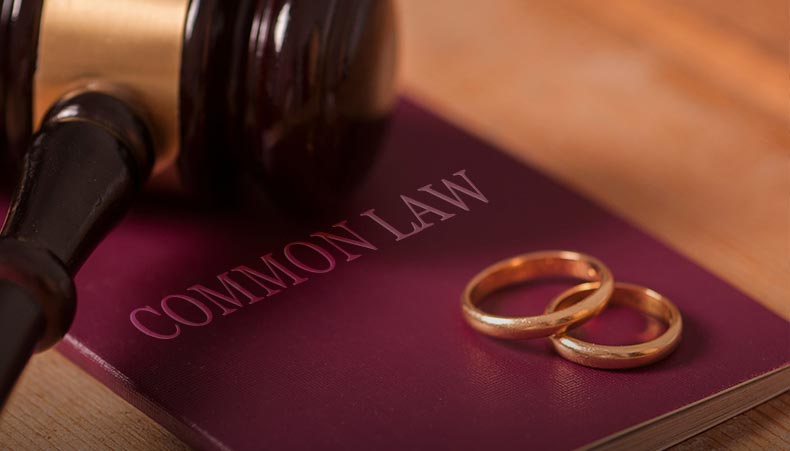Is common law marriage legal in Missouri? What are the requirements for a common law marriage in Missouri? These are questions that many people in Missouri may be asking themselves. In this blog post, we will answer those questions and provide more information on common law marriages Missouri. So, if you are interested in learning more about common law marriage in Missouri, keep reading.
Contents
- 1 What Is Common-Law Marriage?
- 2 Does Common-Law Marriage Exist In Missouri?
- 3 Does Missouri Recognize Common Law Marriage?
- 4 What Are The Requirements For A Common-Law Marriage In Missouri?
- 5 How Do You Prove Common-Law Marriage In Missouri?
- 6 Benefits Of Common-Law Marriage In Missouri
- 7 FAQ: Common Law Marriage
- 7.1 What determines common law marriage in Missouri?
- 7.2 Does Missouri have domestic partnership?
- 7.3 When did Missouri abolish common law marriage?
- 7.4 Does the state of Missouri acknowledge common law marriage?
- 7.5 How many years is common-law in Missouri?
- 7.6 Is cohabitation legal in Missouri?
- 7.7 What is the difference between domestic partner and common-law?
- 7.8 Can I add my girlfriend to my health insurance if we live together?
- 7.9 Does the federal government recognize domestic partners?
- 7.10 How do you prove common-law marriage in new jersey after death?
- 8 Conclusion: Common Law Marriage Missouri
What Is Common-Law Marriage?
A common law marriage missouri is an informal or unofficial marriage. The common-law marriage creates legal rights, obligations and responsibilities between the spouses just like a regular formal or traditional marriage.
Does Common-Law Marriage Exist In Missouri?
In Missouri, there is no common-law marriage. Unlike many other states in the US, there are currently no laws or statutes that recognize a common-law marriage as an official form of marriage in Missouri. This means that for couples who wish to have their relationship legally recognized in this state, they will need to get married in a formal, legal ceremony.
Does Missouri Recognize Common Law Marriage?
Despite the lack of common law marriage Missouri, there are some exceptions to this rule. In certain cases, couples who have been living together for a certain amount of time and meet certain other criteria may be recognized as married by the state. For example, if a couple has lived together for at least 10 years without formally getting married and meets the other requirements for a common law marriage, the state may recognize their relationship as a common law marriage.
So if you are in a long-term relationship with your partner and want to ensure that your relationship is recognized by the state of Missouri, you should talk to an attorney about whether or not it may be possible to establish a common law marriage in your state. And if you are interested in getting legally married, be sure to check out our guide to getting married in Missouri for more information and resources.
That concludes our overview of common law marriage in Missouri. We hope this information has been helpful.

What Are The Requirements For A Common-Law Marriage In Missouri?
There are several requirements that must be met in order for a relationship in Missouri to be recognized as a common law marriage. These requirements include:
– Living together continuously and openly as a couple for at least 10 years (this does not have to be continuous 10 year period);
– Agreement between the couple that they consider themselves married; and
– Having an intention to be married, either verbally or by acting as a married couple.
If you would like to learn more about common law marriage in Missouri, or are interested in pursuing this type of relationship with your partner, it is important to consult with an experienced family law attorney for legal advice and representation.
How Do You Prove Common-Law Marriage In Missouri?
Proving a common-law marriage in Missouri can be challenging, and requires the help of experienced legal counsel. Evidence that can be used to support your claim for a common-law marriage may include, but is not limited to:
– Copies of joint bank or credit card statements;
– Marriage or birth certificates for children born during your relationship;
– Joint ownership of property, such as a house or car;
– Wills, powers of attorney, or other legal documents that prove you and your partner consider yourselves married.

Benefits Of Common-Law Marriage In Missouri
There are several benefits of common-law marriage in Missouri that couples may wish to consider before deciding whether or not to pursue this type of relationship. These benefits may include access to certain legal rights, protections and privileges that are typically only available through a legal marriage, as well as the financial and practical advantages of having your relationship be recognized as an official marriage.
Some of the key legal rights and protections associated with common-law marriage in Missouri may include:
– The right to make medical decisions on your partner’s behalf if they become incapacitated or are otherwise unable to do so;
– The right to inherit property from your partner, as well as the ability to sue for ownership of any property that was acquired jointly during your relationship;
– The right to child custody or visitation rights if you have children, as well as the ability to seek child support from your former partner; and
– The right to file for divorce or legal separation from your partner.
If you are considering establishing a common-law marriage in Missouri, or are simply interested in learning more about this type of relationship, it is important to consult with an experienced family law attorney for legal advice and guidance.

FAQ: Common Law Marriage
What determines common law marriage in Missouri?
There is no universal definition of common law marriage in Missouri, as each state has its own set of requirements and legal requirements for recognizing a relationship as common law. Generally speaking, however, in order to be recognized as a common law marriage in Missouri, you must live together as an unmarried couple for at least 10 years and meet certain other criteria, such as agreeing that you consider yourselves to be married and having the intention to get married at some point in time.
Does Missouri have domestic partnership?
While Missouri does not currently offer any form of domestic partnership or civil union that is equivalent to a legal marriage, couples in Missouri who wish to establish a common law marriage may do so by meeting the established requirements and seeking legal recognition from the state.
When did Missouri abolish common law marriage?
The state of Missouri formally abolished common law marriage in 2006, and all existing common law marriages that were established prior to this date are still legally recognized. As such, if you are currently living in a common law relationship with your partner, it is important to consult with an experienced family law attorney who can help you navigate the legal requirements for establishing a common law marriage in Missouri.
Does the state of Missouri acknowledge common law marriage?
While the state of Missouri no longer formally recognizes common law marriages that are established after 2006, couples who were in a common law relationship prior to this date may still be considered married and have their relationship recognized by the state. If you are currently living in a common law marriage in Missouri, it is important to seek legal advice from an experienced attorney in order to fully understand your rights and entitlements under state law.
How many years is common-law in Missouri?
There is no set number of years required in order to establish a common law marriage in Missouri, as each couple must meet the established requirements and have their relationship recognized by the state. Generally speaking, however, couples who wish to establish a common law marriage typically live together for at least 10 years before doing so.
Is cohabitation legal in Missouri?
Yes, cohabitation is legal in Missouri and does not require couples to meet any special criteria or requirements in order to do so. However, if you are currently living in a common law marriage with your partner, it is important to seek legal guidance from an experienced family law attorney in order to fully understand your rights and entitlements under state law.
What is the difference between domestic partner and common-law?
The main difference between domestic partners and common-law partners is that domestic partnerships are established via legal recognition from the state, while common-law partnerships are established through a couple’s lived experience over time. Domestic partnerships typically offer more extensive rights and benefits than common law marriage, but this can vary depending on the state in which you live. As such, it is important to seek legal advice from an experienced family law attorney in order to understand the implications of different forms of partnership for your individual situation.
Can I add my girlfriend to my health insurance if we live together?
In most cases, yes. As long as you are currently living in a domestic partnership or common law marriage with your partner and meet the eligibility requirements for insurance coverage through your employer, you should be able to add her to your health insurance plan. However, it is important to consult with an experienced insurance professional or family lawyer in order to understand the specific requirements and policies of your health insurance plan.
Does the federal government recognize domestic partners?
The federal government does recognize domestic partnerships that are established in states where such partnerships are legally recognized. However, the rights and benefits afforded to couples under federal law can vary depending on things like your employment status, income level, and immigration status. As such, it is important to seek legal advice from an experienced family lawyer or immigration professional in order to understand the implications of domestic partnership status for your individual situation.
How do you prove common-law marriage in new jersey after death?
In order to prove that a common law marriage existed in New Jersey after death, you will typically need to provide evidence or documentation of the relationship. This can typically include things like shared lease agreements, joint bank and credit card accounts, and records of joint purchases or expenses. Additionally, it may be helpful to consult with an experienced family lawyer or estate planning professional for guidance on the specific steps and documentation that will be required to prove common law marriage in New Jersey after death.
Conclusion: Common Law Marriage Missouri
If you are interested in establishing a common law marriage in Missouri, it is important to understand the requirements and implications of this form of partnership for your individual situation. Whether you are currently living with your partner or seeking to prove a common law marriage after death, it is best to consult with an experienced family lawyer or estate planning professional for guidance on the specific legal considerations and requirements for your situation.
Scott A. Bentley Attorney at Law in McHenry, IL is a debt relief and personal injury attorney dedicated to helping people in their time of need. He can assist in filing bankruptcy under the bankruptcy code or work with you through a personal injury case. His more than 25 years of experience provide him with the insight and knowledge you need when contending with difficult legal issues. Scott Bentley bankruptcy services stop: Creditor harassment, Lawsuits, Garnishments, Foreclosures, Repossessions, By filing for chapter 7 or 13 bankruptcy with Scott Bentley, you’ll also be able to create personal reorganization plans that serve to resolve individual bankruptcy issues. He and his staff are committed to providing you with dignified service and the respect you deserve. Just because you owe someone or some company money doesn’t mean you forfeit your rights. With Mr. Bentley you can be sure you will receive personalized attention and aggressive legal representation. The firm is proud to
